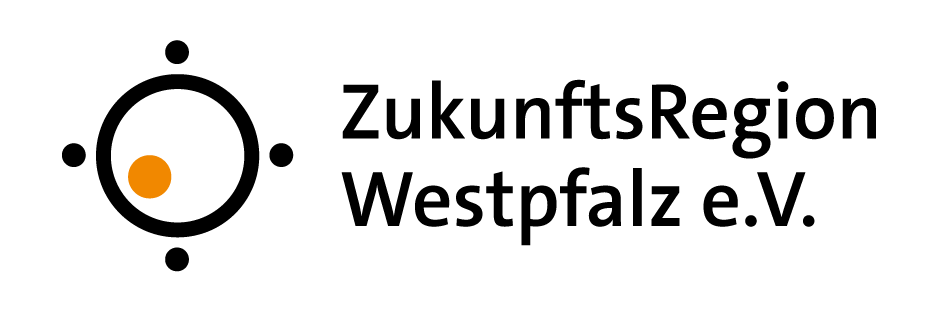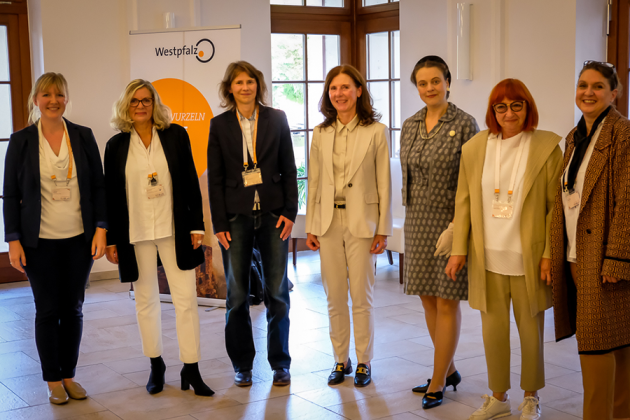"You can lead well if you can lead yourself well and reflect on yourself"
This quote from Jutta Metzler, Deputy Chairwoman of the ZRW and Vice President of the Chamber of Industry and Commerce, sums up the 3rd network meeting of the women leaders in the Western Palatinate. On Tuesday, October 10, around 50 women leaders from the Western Palatinate came together to exchange ideas on the topic of "Female leaders in the past - Female leaders today".
The visit from the Ministry for Family, Women, Culture and Integration by Dr. Heike Jung provided valuable insights. As head of the Women's Department, it is her aspiration to ensure equality between women and men in society and was therefore pleased to be able to participate in such a "lively network". She reported on some of the initiatives that exist in the Ministry of Women's Affairs to fulfill the equality mandate, to ensure the compatibility of family and career, and to make it easier for women and men to take on leadership roles on a part-time basis. To this end, the mentoring program "More women to the top!" and the model project "Leading in part-time" were launched, among others. To counteract the under-representation of women in local politics, the campaign "Local politics needs women" was launched with Katharina Binz, Minister for Women.
A unique transition to the panel discussion was provided by Angela Pfenninger - Museum Theater Events. In the role of Elisabeth Schwarzhaupt (1901 - 1986), she took the participants on a journey through time to the beginnings of the women's movement. An acting performance that reflected the time of the so-called "obedience paragraph" and the subordination of women as well as the insistence of a woman on her rights and equal rights between men and women.
Under Konrad Adenauer's government, she became Germany's first female federal minister in 1961. Topics such as the compatibility of career and family or being a woman executive in a male-dominated industry were relevant to Schwarzhaupt even then and still need to be discussed today in order to achieve change. The "FührungsFrauen Westpfalz" network provides the appropriate platform for this.
The panel discussion, moderated by Veronika Pommer, regional manager of the Northwest Palatinate Chamber of Commerce and Industry, offered exciting insights into the personal experiences of the four participants in leadership positions from different industries.
Even though a lot has already changed for the better, there are still hurdles, of course. Delphine Schwab, Managing Director at Goldbeck Kaiserslautern, can provide concrete insights as a mother of a six-month-old daughter. Especially for women returning to work after parental leave, there is still a lot to do: The balancing act between raising children and professional responsibility is immense, she says. And this is despite the fact that a change has already taken place since the Corona pandemic and the accompanying possibility for home office, says Simone Grub, Commercial Director of the Pfalztheater Kaiserslautern. The understanding that mothers in management positions often don't have it easy is partly due to the "missing glasses" of men, says Delphine Schwab.
Dr. Heike Jung identifies the "glass ceiling" as a symbol for the obstacles women have to overcome. She wants to use it to point out the invisible barriers that prevent women from getting beyond a certain point in their careers.
The career of Dr. Marion Schulz-Reese, former head of ITWM Kaiserslautern, was exciting. One important point that she looks back on was attending an all-girls school. Because being among only female competitors means that there is always a woman who is the best in every subject. Personally, she has experienced few obstacles in her career as a leader, even though she was studying mathematics at the time and at that time only 10% of the students in the subject were female.
What are the measures and personal approaches to be successful as a female leader?
In addition to support measures such as mentoring programs and coaching, Dr. Jung clearly sees the focus on creating corporate cultures that accompany this change. Unfortunately, Ms. Jung sees the topic of women's quotas as misunderstood. She points out that even when the quota is applied, qualifications are decisive and advocates seeing it as an instrument for more equal treatment.
Whether it's to serve as a role model or if you were always destined to work in a leadership position, the motives may be different, but they all have one goal: to advance gender equality.



